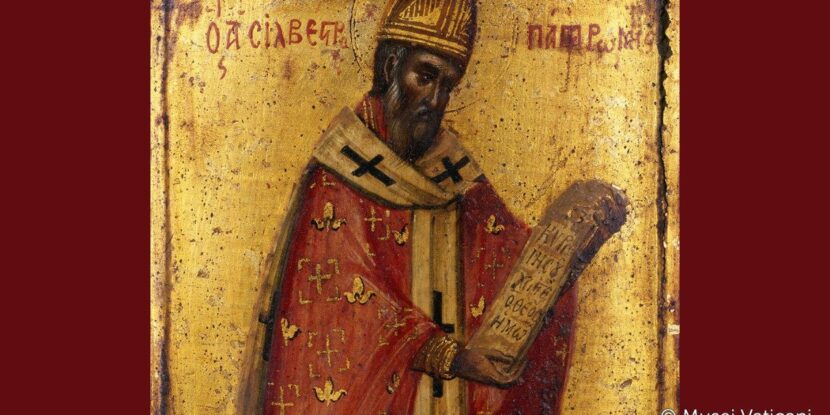While you may mark December 31st in your calendar as New Year’s Eve or Hogmanay, countries including Germany and Poland still have it down as Silvester – that is, the Feast of Saint Sylvester; the Seventh Day of Christmas.
Sylvester was Pope from 314 A.D. to 335 A.D., a time when Roman Catholics, Eastern Orthodox, and Oriental Orthodox were all still one Church, and over a thousand years before John Wycliffe, Jan Huss, and Martin Luther opened the door to the innumerable Protestant denominations of the modern era.
Crucially, St. Sylvester’s pontificate began the year after the Edict of Milan, in which the Emperor Constantine put a permanent end to the official persecution of the Church and allowed the early Christians to emerge from their Catacombs.
Perhaps even more crucially, St. Sylvester is the pontiff who approved the original form of the Nicene Creed, which to this day serves as the defining statement of Christian belief for Catholic, Orthodox, and most Protestant Christians:
We believe in one God, the Father almighty, maker of all things visible and invisible; And in one Lord, Jesus Christ, the Son of God, begotten from the Father, only-begotten, that is, from the substance of the Father, God from God, light from light, true God from true God, begotten not made, of one substance with the Father, through Whom all things came into being, things in heaven and things on earth, Who because of us men and because of our salvation came down, and became incarnate and became man, and suffered, and rose again on the third day, and ascended to the heavens, and will come to judge the living and dead, And in the Holy Spirit.
But as for those who say, There was when He was not, and, Before being born He was not, and that He came into existence out of nothing, or who assert that the Son of God is of a different hypostasis or substance, or created, or is subject to alteration or change – these the Catholic and apostolic Church anathematizes.
Another saint closely associated with the Christmas season was also involved in the Council of Nicaea, from which the Creed takes its name: Old Saint Nick himself, at this time less concerned with delivering gifts than slapping down heretics – quite literally.
Many of the traditions associated with Silvester, which have changed a great deal over the centuries, are similar to those for New Year’s Eve, with fireworks ringing in the turn of the calendar.
Like Childermas, it is also a time for pranks, with Germans often sharing jelly donuts – but with the twist that the odd one is filled with mustard.
One Silvester superstition you may wish to take from the Poles, normally scrupulous about keeping their homes spick and span for guests, is that you take a break from cleaning, or the basis that you might be symbolically sweeping the happiness out of the coming year.
Now more than halfway through a busy Christmastide, you might like having an excuse to put your feet up for a bit!


